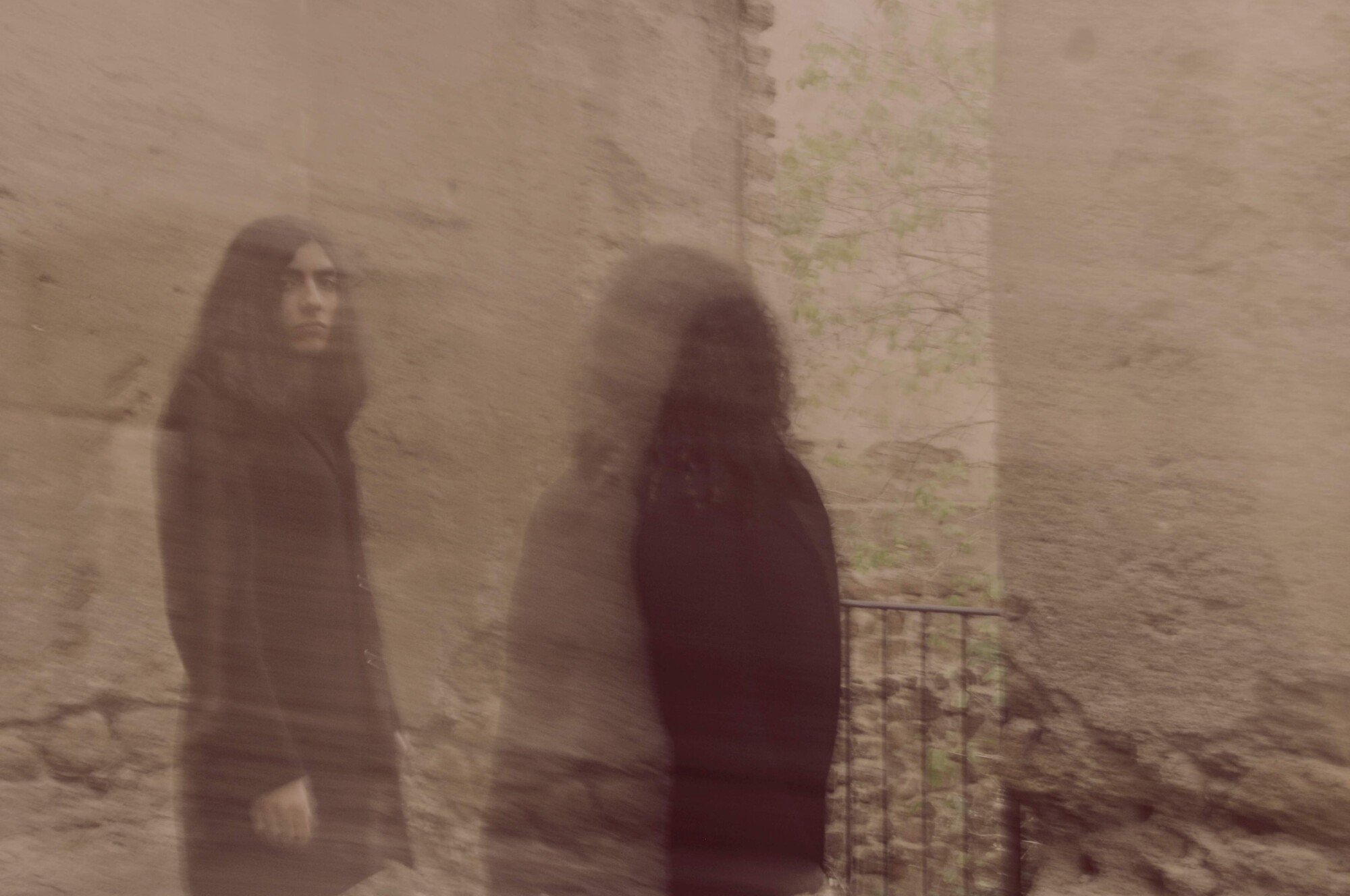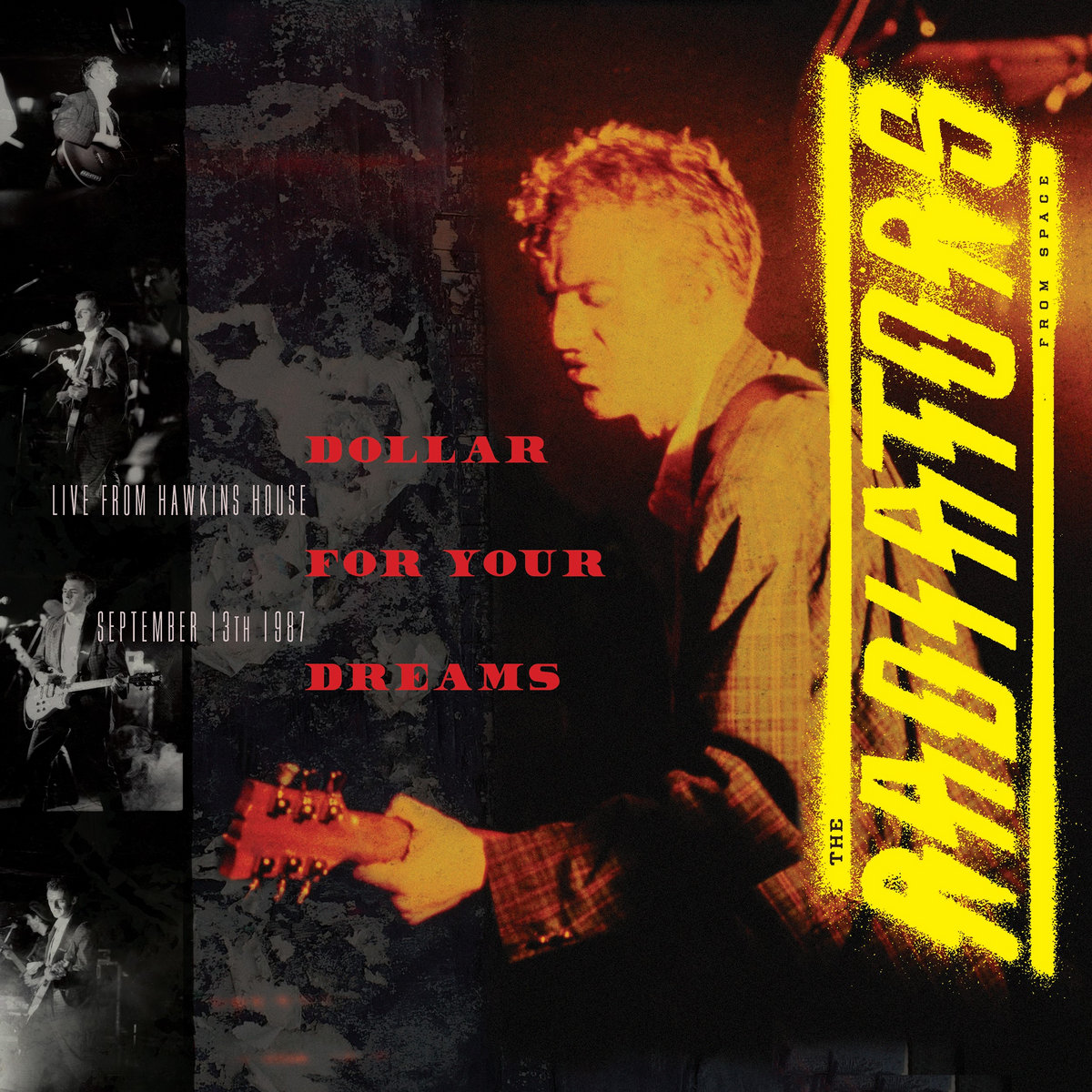Malesh | Interview | “Wild, Esoteric, Cosmic”
Malesh are sonic adventurers who blend the esoteric with the everyday, crafting recordings that are both unique and infused with elements of experimental krautrock and introspective literature.
Their recent listening obsessions span from otherworldly Slovenian soundscapes to hidden gems of English folk. Their music is a wild, unpredictable ride—an intoxicating cocktail of the old and the avant-garde that will leave you craving more.
Originally, Malesh emerged in 2020 not as a grand vision but as a studio experiment—a collection of demos longing for a sonic life. What began as a haphazard assembly of sound—a lab where chaos and creativity mingled freely—has evolved over the years. The project has seen a revolving cast of collaborators, each adding their own flavor, especially for live shows. While the lineup may shift like a restless specter, the core of Malesh remains an unrelenting quest to capture the raw, untamed essence of music in its most experimental form. If you’re not already on this train, get on board before it leaves the station.
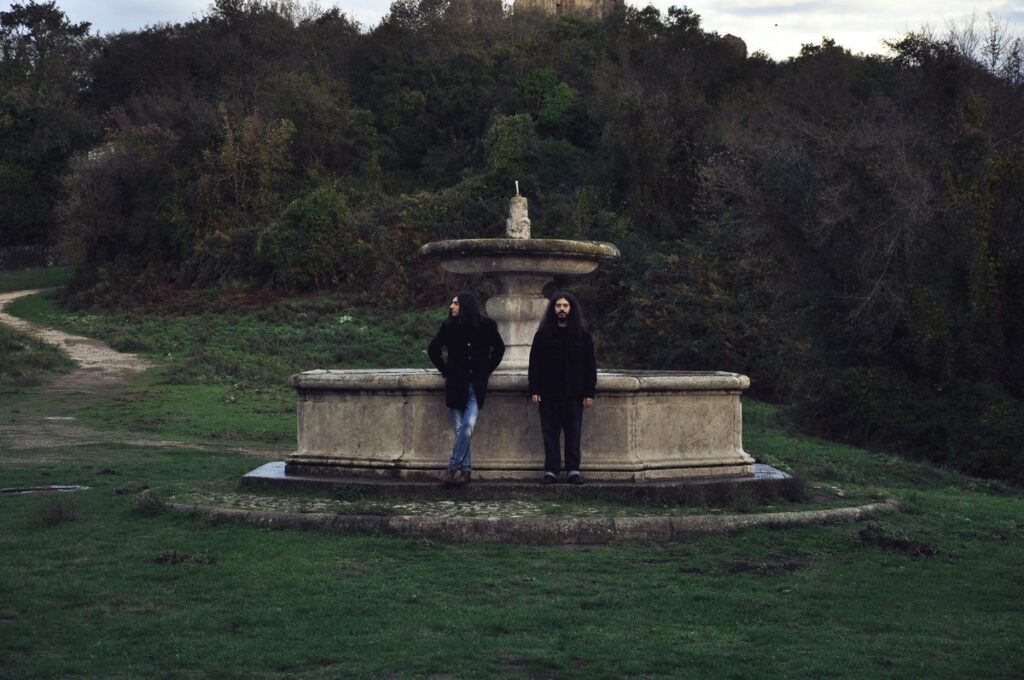
“Without improvisation, I think I wouldn’t be able to write most of my music!”
Would you like to talk a bit about your background?
Pablo Monterisi: My musical background is basically only Malesh! I started the band in 2020 in order to bring many years of private demos to life. Apart from music, I worked in theater and many more uninteresting jobs. I also put out a book last year through an independent publishing house, Eretica Edizioni.
Martino Petrella: It’s strange to talk about my background; I feel that I’m just at the starting point for many things. I don’t have proper musical training. I realized music was something special when my mother made me listen to the Beach Boys when I was a child. I started playing a couple of years later, after my father got me a guitar for Christmas. What drives me is my love for music and the need to share it with someone. Apart from music, I run an independent comic book publishing house called Profondissima. Maybe someday I’ll even finish my university course.
What does the name “Malesh” refer to in the context of the band name?
Pablo: It’s an Arabic word which technically means “nevermind” or “sorry.” I just liked the sound of it and the inevitable nonsense it carries to the Western ear. Plus, it’s a good self-explanatory name for those who don’t enjoy our music.
Can you elaborate on the conceptualization process behind ‘Hermitage’ and how you decided to symbolize different mind states through the essence of deities?
Pablo: Back in 2020, when I was putting the album together, I was reading a lot of sacred texts from different cultures, from the Bhagavad Gita to Saint Augustine. I guess I was naively looking for something that mirrored that vague sense of confusion I felt in those days. Taking a chunk from each of those cultures and molding them into one just seemed like the right thing to accompany that feeling. Utterly profane, you know.
What inspired you to explore the themes of war, violence, ataraxia, power, obscurity, descent, and ascension through the lens of various gods and goddesses?
Pablo: Apart from the above-mentioned sacred texts, I got a lot of inspiration from movies and books. I was especially into movie directors like Werner Herzog, Mario Bava, and Lucio Fulci. Their movies are insane! Also wandering around a lot. I live in a place that is full of ancient Etruscan or Roman ruins.
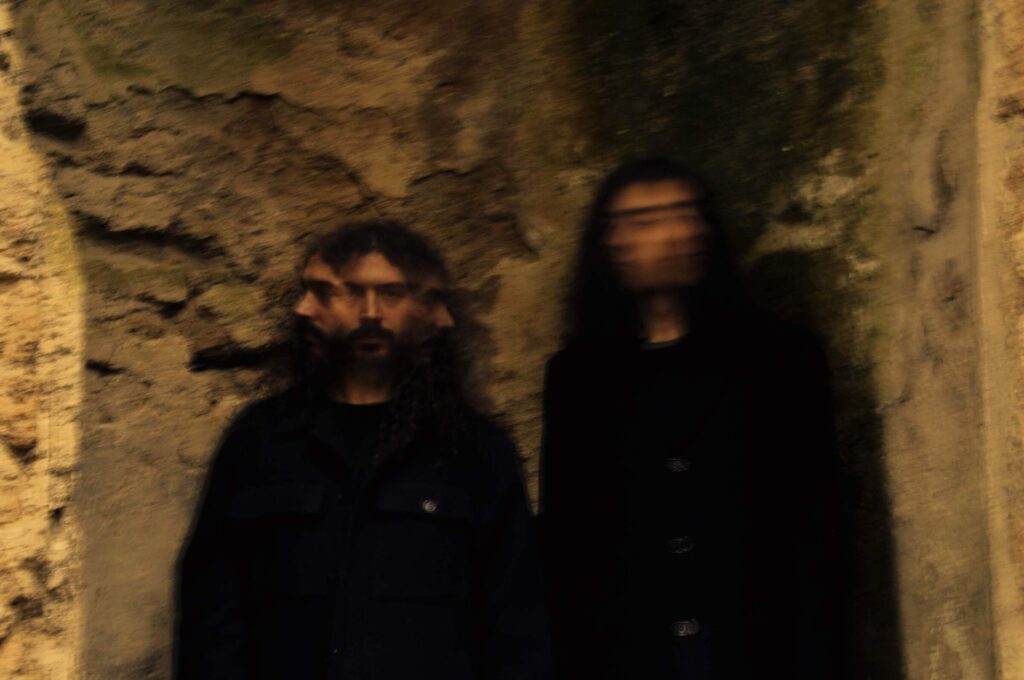
How did you approach the musical composition for each track to capture the essence of the respective deity or mind state?
Pablo: Most of those tracks were my first attempt at writing for a specific instrument (back then it was just me and a drummer; Martino joined later as co-writer and lifesaver). The first tune was my first attempt at writing for guitar, the second one the first attempt at writing for bass, and so on. They’re very far from how I do things now, but I still look back at those tunes with affection.
Can you walk us through your creative process in blending diverse musical elements such as guitars, oud, bansuri flute, tzouras, and keys to create a cohesive sound?
Pablo: Throughout the years, I’ve had the privilege of collecting many different instruments out of sheer luck. For example, I got the oud in Bahrain in 2016 because the family that was hosting me just had this wonderful instrument lying around, and I kept playing it at random. They weren’t musicians themselves and kindly decided to gift me that oud, which has since become one of my favorite instruments ever. The same goes for the bansuri and the various percussions. The tzouras was a last-minute addition, as it was lying around in the studio. I quickly fell in love with it. Unfortunately, I lost contact with the owner, but I’m planning on buying one in the future. I just write with whatever instruments I have. For instance, the last EP I did was written and recorded almost entirely on an old rusty piano my father uses as a shelf, along with a flute, a mandolin, and a 12-string guitar.
Could you discuss the recording process for ‘Hermitage’ at Ghat Studio? What were some unique challenges or highlights during the recording sessions?
Pablo: It was the first time I ever found myself in a studio (I celebrated my 20th birthday there!). It was all very magical but also extremely impractical. The then drummer had a lot of timing issues and kept messing up all the parts, so I very unkindly forced him to re-record the whole album twice until his parts sounded okay. We later went back into that same studio to make yet another album. Unfortunately, we had to part ways when we tried to schedule a tour, as he kept having problems with the tunes. I also remember we had a few miscommunications with the sound engineer, which ultimately resulted in him losing interest in making the album as we were working on it. It was definitely not an easy process, and I was quite unsatisfied with the result initially. Now I’m just ambivalent. I can still hear those mistakes, but they don’t bother me as much as they did back then. It was a cocktail of inexperience, but a very nostalgic inexperience which I kind of miss now.
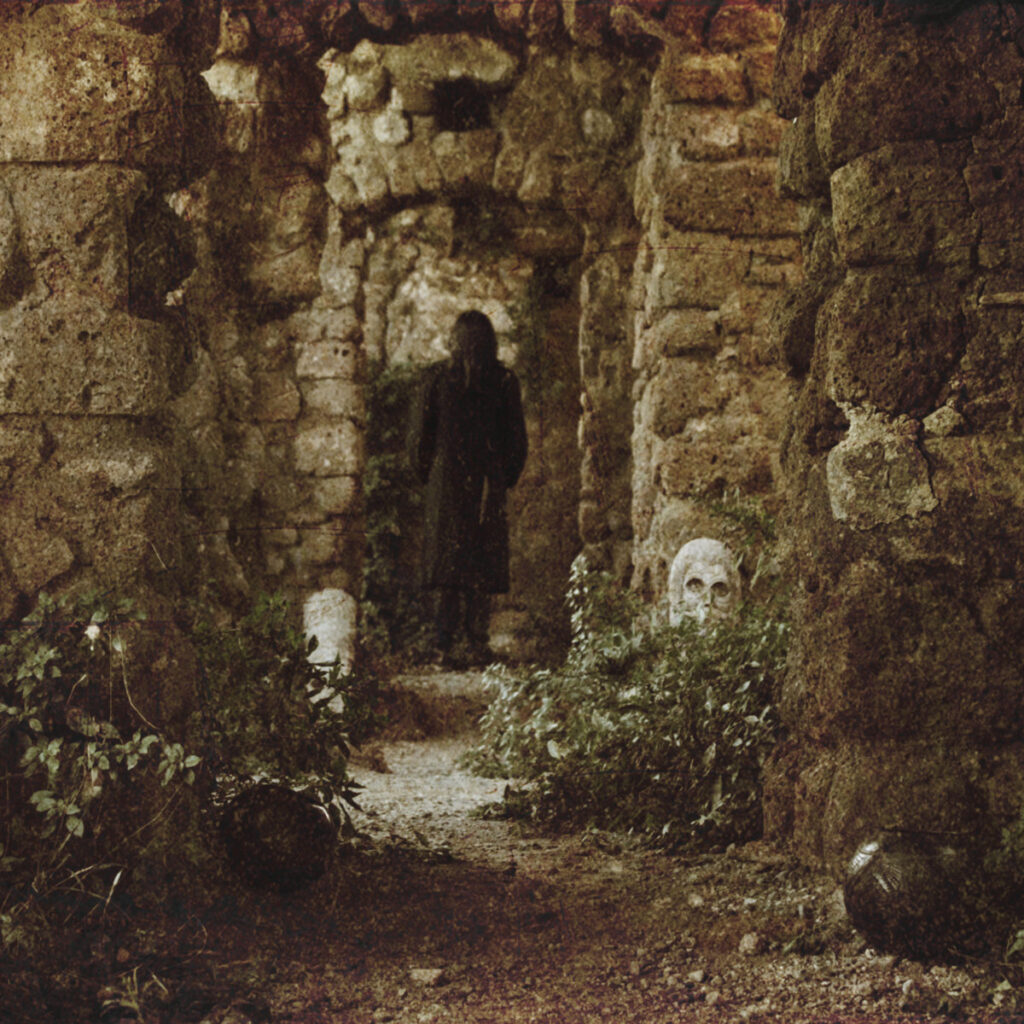
How do you adapt the intricacies of ‘Hermitage’ for live performances, considering the diverse instrumentation and layered compositions?
Pablo: We only brought that material live once, last year, and it was very painful. By then, Martino had joined the band, along with a couple of other people who were helping us out for the live shows. In the end, a lot of personal turmoil with the other guitar player, as well as various technical limitations, forced us to cut and rearrange almost every tune. I wasn’t happy with the result, but I must acknowledge that recreating those first two albums accurately would require at least seven or eight musicians, which wasn’t an option during our first tour. The experience was insane though! We toured with Zone Six from Germany and Speck from Austria, and we had a blast. The challenge is even harder now: Martino and I are about to start recording our next album, which is way more layered and full of instruments than the first two. I guess we’ll need an orchestra if we ever want to bring it live!
How important is improvisation for you?
Pablo: It’s basically the only way of writing something that doesn’t exist yet! You fiddle around until your fingers drive you somewhere interesting, and then once you have that first nucleus, you start to develop ideas around it until the whole thing grows into a solid piece. Sometimes you fiddle around for hours and nothing comes out, and sometimes you just pick up a flute and the melody is right there in front of you. It’s the best feeling in the world when that happens. I also have to say, Martino and I never have a dry session. Every time we set out to write, something interesting comes up. We write a lot! This year only, we finished writing the next Malesh album, with all of its outtakes, plus a cover song, plus another full album by our other band Brautigan, plus some more recent tunes for yet another future Malesh album (plus I wrote and shelved a whole other Malesh album last year, but that’s another issue). Writing is all we do, all the time, even if we always end up shelving a substantial amount of material.
Martino: Without improvisation, I think I wouldn’t be able to write most of my music! My approach to composition is always based on picking an instrument (mostly guitar) and starting to play completely random stuff, a weird stream of consciousness in which many unlistenable sounds are generated. Sometimes a prettier bit comes out, and that’s the one that eventually will give birth to a song. I don’t have an academic background; I don’t read or write music, so my approach is mostly based on how I feel (and that’s why it sucks hahahaha).
Are any of you involved in any other bands, or do you have any active side projects going on at this point?
Pablo: Apart from the next Malesh album and the other band Brautigan, I’m in the middle of writing a second book, which will likely be published next year. I’m also working on a screenplay based on a soundtrack I wrote some time ago (back then it was just a soundtrack for a non-existent movie; now I’m trying to write that as well).
Martino: Malesh is not the only project I share with Pablo. Since last year, we ventured into a new project called Brautigan. It started almost by accident, jamming with our friends Andrea and Leonardo Pucci at their house in the countryside. We share a love for art-rock, new wave, and free jazz, and from this common ground, we started to develop a repertoire. We compose together in a very spontaneous and natural way; I’ve never experienced something like this before. Right now, we are recording our first album. I’m also part of a krautrock-ish group called Neoprimitivi. It’s an exciting and fun adventure; we experiment with unconventional and hand-made instruments that form the main texture of our sound.
Let’s end this interview with some of your favorite albums. Have you found something new lately that you would like to recommend to our readers?
Pablo: Lately, I’ve been digging the amazing ‘The Liquified Throne of Simplicity’ by the Slovenian trio Širom, as well as Nature and Organisation’s ‘Snow Leopard Messiah.’ Also, Jon Hassell’s ‘Listening to Pictures,’ Oneohtrix Point Never’s ‘Russian Mind,’ Meredith Monk’s ‘Book of Days,’ as well as ‘The Seer’ by Swans, ‘To All Trains’ by Shellac (rest in power, Steve Albini), Gigi Masin’s ‘Talk to the Sea,’ and Cheer-Accident’s ‘Introducing Lemon.’ Also, a special mention to Julinko’s ‘No Destroyer.’ I should stop now, or I could go on forever. God, I haven’t even mentioned Comus, Kevin Ayers, Steve Reich, Richard Skelton, Mira Calix, Gérard Grisey, Paul Hindemith, Frank Zappa, Sun Ra, Brian Eno, Silver Apples… Ah, nevermind!
Martino: In the first half of 2024, I became obsessed with the soundtrack from the cult movie The Wicker Man. I listened to that record countless times; it has an aura of its own that touches me in a way no other album does. Another recent favorite is ‘Lunar A-Sides’ by Craig Fortnam, a hidden jewel of English modern folk music. I should also mention ‘On Land and in the Sea’ by Cardiacs, one of the most overlooked and amazing bands that ever existed.
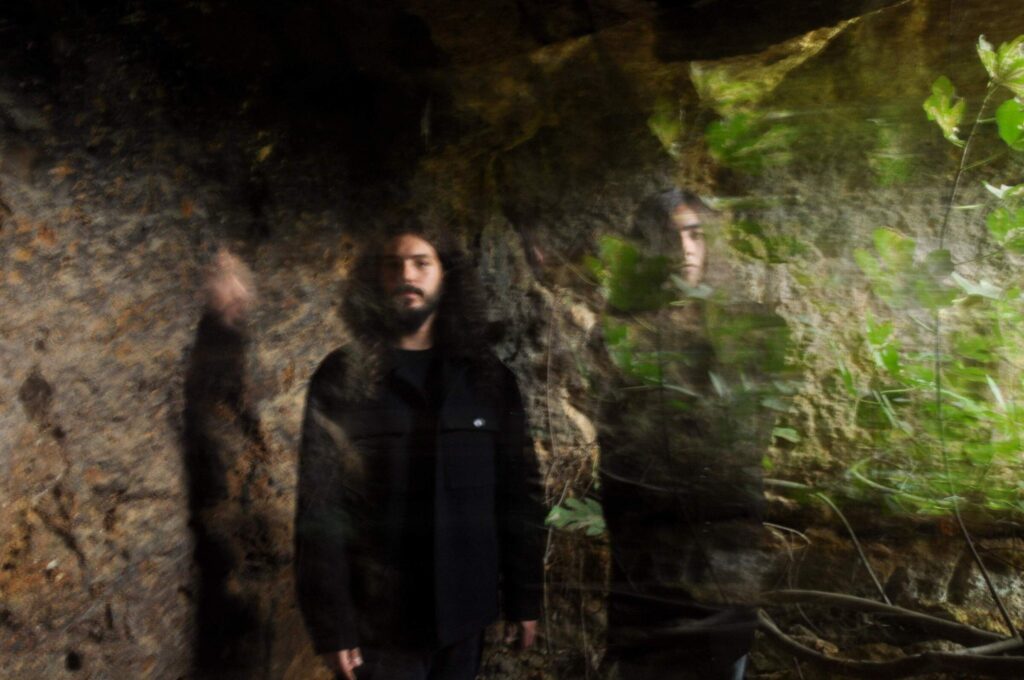
Thank you. The last word is yours.
Pablo: Many thanks to whoever is reading our silly lucubrations and especially many thanks to Klemen and Psychedelic Baby Magazine for this interview. See you around!
Klemen Breznikar
Malesh Linktr / Facebook / Instagram / Bandcamp / YouTube

